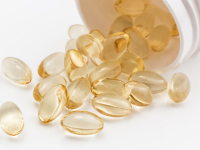
Andrzej Benkowski
Technical Manager, Probiotics & Dietary Supplements
As the Technical Manager at Eurofins Center of Excellence for Probiotics, Andrzej Benkowski brings over 18 years of expertise in biotics quality management, testing, and technology. With a strong technical background in food microbiology, Andrzej specializes in contract R&D, method development, and pioneering technologies for probiotic evaluation.
Since 2019, Andrzej has chaired the International Probiotic Association (IPA) Technical Committee and has been a member of the IPA Board of Directors since early 2024. He also contributes to the IPA Postbiotics Committee and has served as the IPA expert liaison with the International Organization for Standardization (ISO) TC34/SC9 Working Group 11 since 2022, co-convening their Enumeration Subgroup.
Andrzej is dedicated to advancing the biotics industry by setting rigorous standards and driving innovation with a focus on quality.
Outside of his professional and scientific achievements, Andrzej is a member of the Eurofins Madison Site Employee Engagement Team and manages the Community Supported Agriculture (CSA) Program for the site. A founding member of the funk band Steez, he also plays saxophone, synthesizers, and vocals. Andrzej enjoys the outdoors, spending time with his family, and pretending to be a coffee aficionado. Additionally, he has a passion for collecting sneakers and fitted hats.
Below are resources from Andrzej:
When it comes to refrigerated and frozen foods, shelf-life testing isn’t just about timelines, it’s about protecting your brand, your label claims, and your consumer’s experience. In this Ask the Expert feature, Sam Wiesenfeld shares insights into the most common questions clients face when designing shelf-life testing protocols for refrigerated and frozen foods.
When it comes to dietary supplement testing, one seemingly small detail can have outsized consequences: specifying the correct vitamin form. Understanding and communicating the exact vitamin form in your product is not just a technical necessity, it’s a strategic imperative in ensuring accurate results, timely reporting, and regulatory compliance.
A supplement manufacturer added methylcobalamin (Vitamin B12) to a product, expecting to meet label claims. However, testing revealed only ~50% of the claimed amount, triggering an out-of-spec (OOS) result. Read to learn how Eurofins Supplement Testing resolved the unexpected results.
Switching oil sources, or developing a new product with an alternative oil, requires more than a label change. It demands a holistic view of how the oil behaves in your product, how it interacts with other ingredients, and how it holds up over time. Click to learn about the key considerations.
Protein analysis is typically based on a Nitrogen analysis and assumed factors to calculate protein. Since proteins are not the only source of Nitrogen, Protein analysis can be falsely inflated by a variety of ingredients and other food components. Check out this infographic to learn more about non-protein nitrogen.
The bar aisle is brimming with possibilities—and today’s consumers are more curious and discerning than ever. As expectations rise around flavor, texture, and ingredient transparency, brands have a unique chance to reimagine what a bar can be. This webinar explores the dynamic evolution of the bar category, especially protein bars, and reveals how thoughtful innovation can help your brand rise above the noise and truly connect with consumers. Originally Aired on November 5, 2025
As global demand for animal protein continues to rise, producers, distributors, and suppliers face increasing pressure to meet complex veterinary drug compliance standards. This webinar offers a practical roadmap for navigating the regulatory landscape governing the export of animal protein, with a focus on FDA and USDA requirements, international certification processes, and emerging trade dynamics.
The FDA and USDA are seeking public input to define ultra-processed foods (UPFs), aiming to shape future labeling, regulation, and consumer awareness. Learn how this RFI could impact food policy and public health.
Grain trading, especially in commodities like soybeans, relies on accurate lab analysis to determine quality and compliance. But when discrepancies arise between a supplier and a buyer, these disagreements can stall deals and generate costly conflict. That’s where referee testing steps in. Click to read about this crucial process that maintains trust and transparency.
Discover how dietary supplement companies can proactively mitigate risk—from sourcing to packaging—to protect product integrity, brand reputation, and consumer trust.












